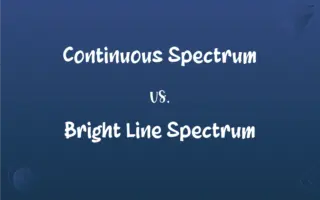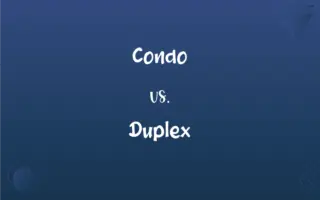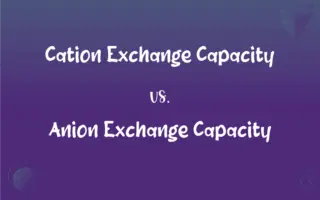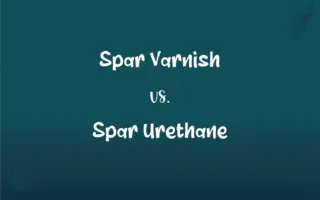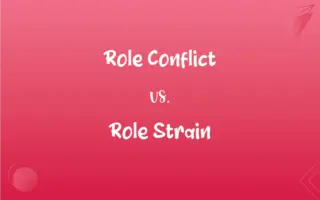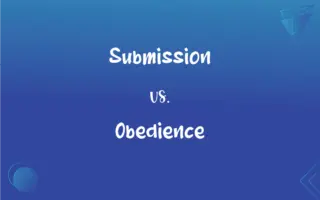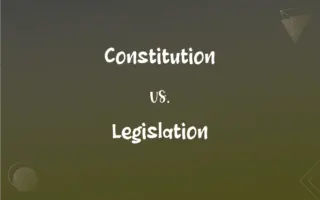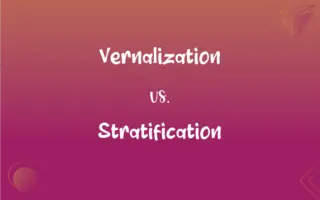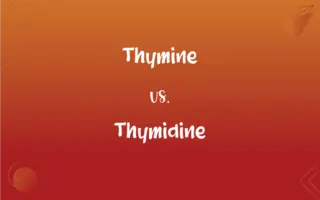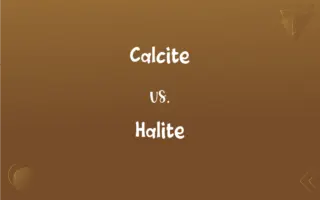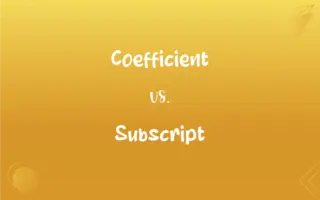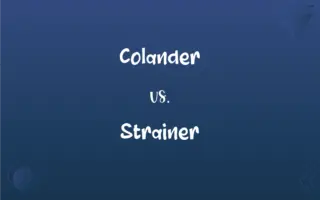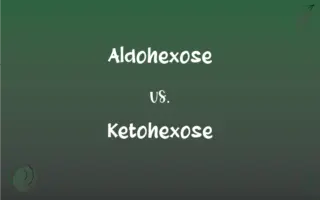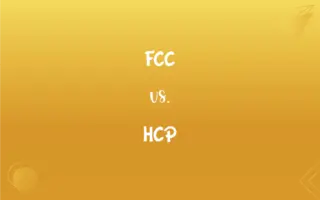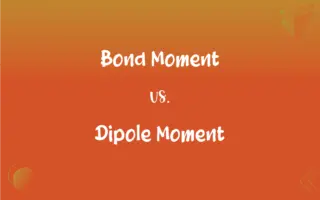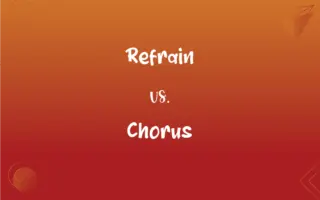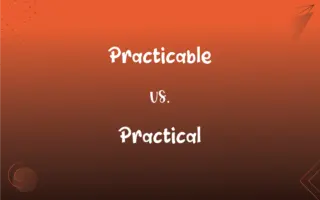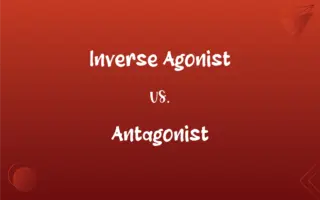Ancient vs. Contemporary: What's the Difference?
Edited by Aimie Carlson || By Harlon Moss || Updated on November 10, 2023
"Ancient" refers to something from a very long time ago, often thousands of years, while "contemporary" means belonging to or occurring in the present.

Key Differences
"Ancient" denotes something that belongs to the distant past, often several centuries or millennia old, like ancient civilizations. On the other hand, "contemporary" refers to the current time, emphasizing modern or present-day relevance.
The term "ancient" is used to describe historical periods, artifacts, and cultures that have existed for a very long time, symbolizing antiquity and age. "Contemporary," however, relates to things that are happening now or belong to the same time period as the present.
In the context of history and archaeology, "ancient" usually covers periods that are historically significant but far removed from the present. In contrast, "contemporary" is used in discussions about current events, trends, and societal changes.
"Ancient" often carries connotations of being outdated or obsolete, but also revered and valuable for historical insight. "Contemporary" suggests relevance, current style, and alignment with the practices or ideas of the present time.
Comparison Chart
Time Period
Distant past, often centuries old
Present time, modern era
ADVERTISEMENT
Usage
Historical, archaeological contexts
Current events, modern trends
Connotation
Antiquity, sometimes outdated
Modern, relevant to current times
Examples
Ancient ruins, historical texts
Contemporary art, current technology
Perception
Often revered for historical value
Considered up-to-date and current
Ancient and Contemporary Definitions
Ancient
Belonging to the distant past.
The ancient ruins were awe-inspiring.
ADVERTISEMENT
Contemporary
Current in style or design.
The building's architecture is very contemporary.
Ancient
Very old or aged.
He owned an ancient manuscript.
Contemporary
Existing or occurring now.
Contemporary fashion reflects current trends.
Ancient
Outdated or obsolete.
The ancient computer no longer worked.
Contemporary
Modern or up-to-date.
She enjoys contemporary music.
Ancient
Historically significant.
Ancient Greece was a cradle of philosophy.
Contemporary
Relevant to present concerns.
Contemporary issues require modern solutions.
Ancient
Revered for age.
Ancient traditions were passed down through generations.
Contemporary
Belonging to the same time.
Shakespeare was a contemporary of Marlowe.
Ancient
Of, relating to, or belonging to times long past, especially before the fall of the Western Roman Empire (AD 476)
Ancient cultures.
Contemporary
Belonging to the same period of time
A fact documented by two contemporary sources.
Ancient
(Archaic) Having the qualities associated with age, wisdom, or long use; venerable
"You seem a sober, ancient Gentleman by your habit" (Shakespeare).
Contemporary
Of about the same age.
Ancient
A very old person.
Contemporary
Current; modern
Contemporary trends in design.
Contemporary
One of the same time or age
Shelley and Keats were contemporaries.
FAQs
What is 'contemporary'?
Relating to the present or current times.
Do 'ancient' items have historical value?
Often, they are valued for history.
Does 'contemporary' imply modern style?
Yes, it's associated with modernity.
Is 'contemporary' music current?
Yes, it's modern and up-to-date.
Can 'ancient' mean very old?
Yes, referring to extreme age.
Can 'ancient' refer to cultures?
Yes, like ancient Egyptian culture.
Can 'ancient' refer to historic texts?
Yes, like old manuscripts.
What does 'ancient' mean?
Pertaining to the distant past.
Do 'ancient' objects include artifacts?
Yes, like tools or pottery.
Are 'contemporary' events recent?
Yes, they occur in the present.
Can 'contemporary' refer to living people?
Yes, those living in the present.
Are 'ancient' practices outdated?
Sometimes, but not always.
Can 'contemporary' be a time period?
Yes, the current or recent period.
Is 'contemporary art' modern art?
Yes, it reflects current trends.
Does 'contemporary' include current technology?
Yes, like smartphones.
Are 'ancient' languages often dead?
Many are no longer spoken.
Is 'contemporary' used in fashion?
Yes, to describe current styles.
Is 'ancient' architecture historical?
Yes, like Greek or Roman structures.
Do 'contemporary' issues mean current problems?
Yes, present-day concerns.
Can 'ancient' imply revered traditions?
Yes, often passed down for generations.
About Author
Written by
Harlon MossHarlon is a seasoned quality moderator and accomplished content writer for Difference Wiki. An alumnus of the prestigious University of California, he earned his degree in Computer Science. Leveraging his academic background, Harlon brings a meticulous and informed perspective to his work, ensuring content accuracy and excellence.
Edited by
Aimie CarlsonAimie Carlson, holding a master's degree in English literature, is a fervent English language enthusiast. She lends her writing talents to Difference Wiki, a prominent website that specializes in comparisons, offering readers insightful analyses that both captivate and inform.


